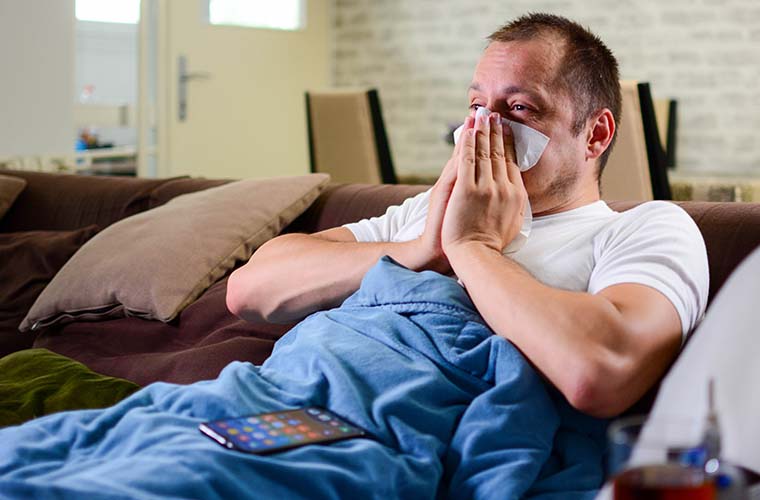Flu Season Is Upon Us: Get Your Vaccine

Flu season is quickly approaching, and infections are slowly increasing in the Tampa Bay area.
That means it’s time to plan and help protect you and your family from the virus.
Dr. Jacquelyn Cawley, BayCare’s vice president of Population Health and chief medical officer for Ambulatory Care, provides recommendations on when to get your vaccine and what to expect during this upcoming flu season.
Get Vaccinated
Dr. Cawley recommends getting the flu vaccine as soon as possible. People should get vaccinated by the beginning of November. It’s important to note that vaccines after October can still provide protection during the peak of flu season, which generally occurs between December and February. The vaccine can help decrease the severity of flu symptoms, hospitalizations and even deaths.
Dr. Cawley says flu vaccines can help protect you and your family, lessen the burden on the health care workforce, and reduce overall infection rates in the community.
The flu shot also is safe to take when you’re in the process of getting the COVID-19 vaccine. Flu vaccines are available to everyone six months and older. The flu vaccine is widely available at local clinics and retail pharmacies across the Tampa Bay area.
Signs and Symptoms
Flu, also known as influenza, is a respiratory infection that affects the nose, throat, and lungs. Flu can be very contagious and symptoms can vary from minor to severe. This infection hits its peak in fall through winter months and can spread quickly in various environments, affecting children and adults of all ages. Flu symptoms can include fever, chills, cough, sore throat, runny or stuffy nose, muscle and body aches, headaches, fatigue, vomiting and diarrhea.
Dr. Cawley says we’re currently seeing Influenza A cases in our community. While infections remain low, we’ll continue to see a steady increase in the next few months.
Treatment
If you get sick with flu, antiviral medications may be a good treatment option. Antiviral drugs can help reduce symptoms and shorten the time a person is sick with a flu infection. These medications also can prevent serious flu complications, like pneumonia. If you’re at high risk for flu complications, always check with your physician before using any medications. These drugs must be given early in the course of illness, so don’t delay seeking care if you are experiencing flu-like symptoms.
Safety Precautions
To help prevent flu and other viral infections, it’s important to continue to practice safety measures. Wash your hands frequently, avoid close contact with people who are sick, cover coughs and sneezes, and avoid touching your eyes, nose and mouth. If you’re sick, stay home to prevent infecting others. You should also clean and disinfect surfaces at home, your digital devices and other objects that may be contaminated. If influenza activity is present in your community, consider wearing a mask when in public or group settings.
Get Proper Care
If you think you’re experiencing flu or cold symptoms, BayCare provides convenient access to different care options and services for patients and their families. Patients can conveniently see a doctor using BayCareAnywhere, see a doctor at one of BayCare’s Walk-In Care locations at select local Publix Pharmacies or visit a BayCare Urgent Care location near you.
For more information, visit BayCareGetCareNow.org.
